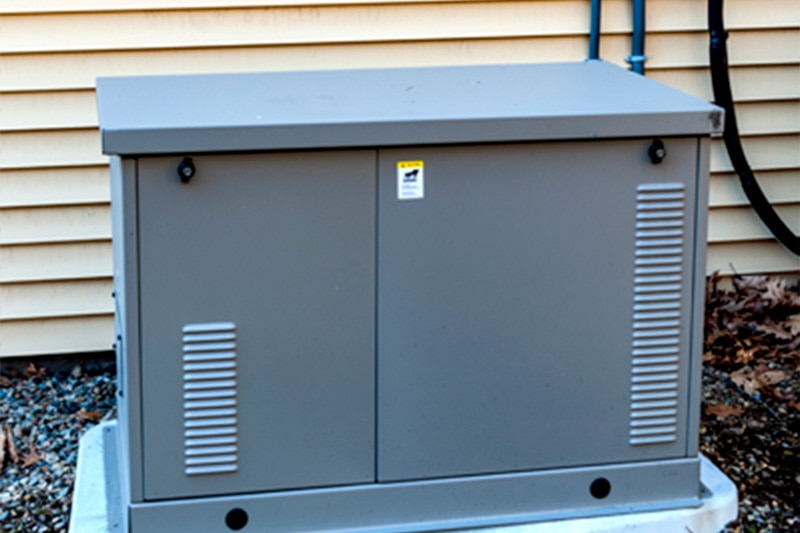Power Outage? A Standby Generator Will Help You Weather the Storm

A standby generator is a lifeline during a power outage. It can keep the lights on, run your refrigerator and oven, enable your heating, ventilation, and air conditioning (HVAC) system to continue working, and power your sump pump, among other appliances.
In some cases, it truly saves lives by fueling home breathing machines, dialysis equipment, oxygen generators, and power wheelchairs.
A standby generator can be installed outside your Los Angeles home, just like an air conditioning unit. When a storm, disaster, or equipment failure disrupts power from utility lines to your home, the generator will kick in and maintain power until electricity is restored.
Dave Broussard AC & Heating can help you choose a standby generator that will suit your needs, and we can install it, too.
What Is the Difference Between a Standby Generator and a Portable Generator?
A standby generator, also called a stationary generator, typically runs on natural gas or propane. It sits on a stone or concrete base outside your home and turns on automatically when it detects power loss. A transfer switch enables it to send power to the electrical circuits in your home and then switches back to stand-by when electricity from utility lines are restored. It works whether you are home or away.
A portable generator uses gasoline, although some models also accept propane. It is noisier and produces less power than a stationary unit. It also requires a hands-on start after it is removed from its storage space in the garage or shed. During a power outage, homeowners follow a series of steps to start and run the machine safely.
Standby generators are quieter than portable equipment. They also are safer because there is no need to connect extension cords to appliances and there is no risk of deadly carbon monoxide (CO) poisoning. Portable generators must be stationed several feet from the home–and neighbors’ homes–to safeguard against CO emissions. They must be dry when in operation to reduce the risk of electrocution.
The American Red Cross says a stationary generator is the safest choice.
Choosing and Installing a Standby Generator
You will need a generator that can power the appliances and devices you plan to run during an outage. Bigger generators can provide more power than smaller generators. To get a general idea of generator size, consider the watt requirements for selected appliances and devices in your home. Generally, you can find the wattage written on the bottom or back of the item. Some appliances also need more electricity to start their motors. Take note of that, too. You can find a list of appliances and associated wattage on some manufacturer websites. Total the watts on your list.
Standby generators are measured in kilowatts and each kilowatt equals 1,000 watts. Keep that in mind as you estimate generator size. You will divide the total wattage your appliances require by 1,000 when calculating the size.
What is the easiest way to size a generator? Hire an experienced electrician from Dave Broussard AC & Heating, to accurately assess power needs for your Broussard home.
An electrician will inspect your electrical panel and determine if it requires an upgrade. During installation, the expert will install a transfer switch. The switch blocks the utility line to your home’s electrical system when the power goes out and allows the generator to kick in. When the utility power is restored, it switches from generator to utility.
You will need to decide where to locate the generator outside your home and whether it will use natural gas or propane. Choose carefully because standby generators are stationary. They typically last 20 to 40 years with regular maintenance.
After the unit is moved onto its concrete slab, the electrician will run an electric line from the transfer switch to the generator. A pipe fitter will connect the equipment to a fuel source. The standby generator is ready for use when the electric and fuel sources are hooked up.
Contact Us Today
Why wait for the next storm, disaster, or equipment failure to keep you in the dark? Call the professionals at Dave Broussard AC & Heating in Broussard, LA for help. Call 337-221-0574 or request service online.

